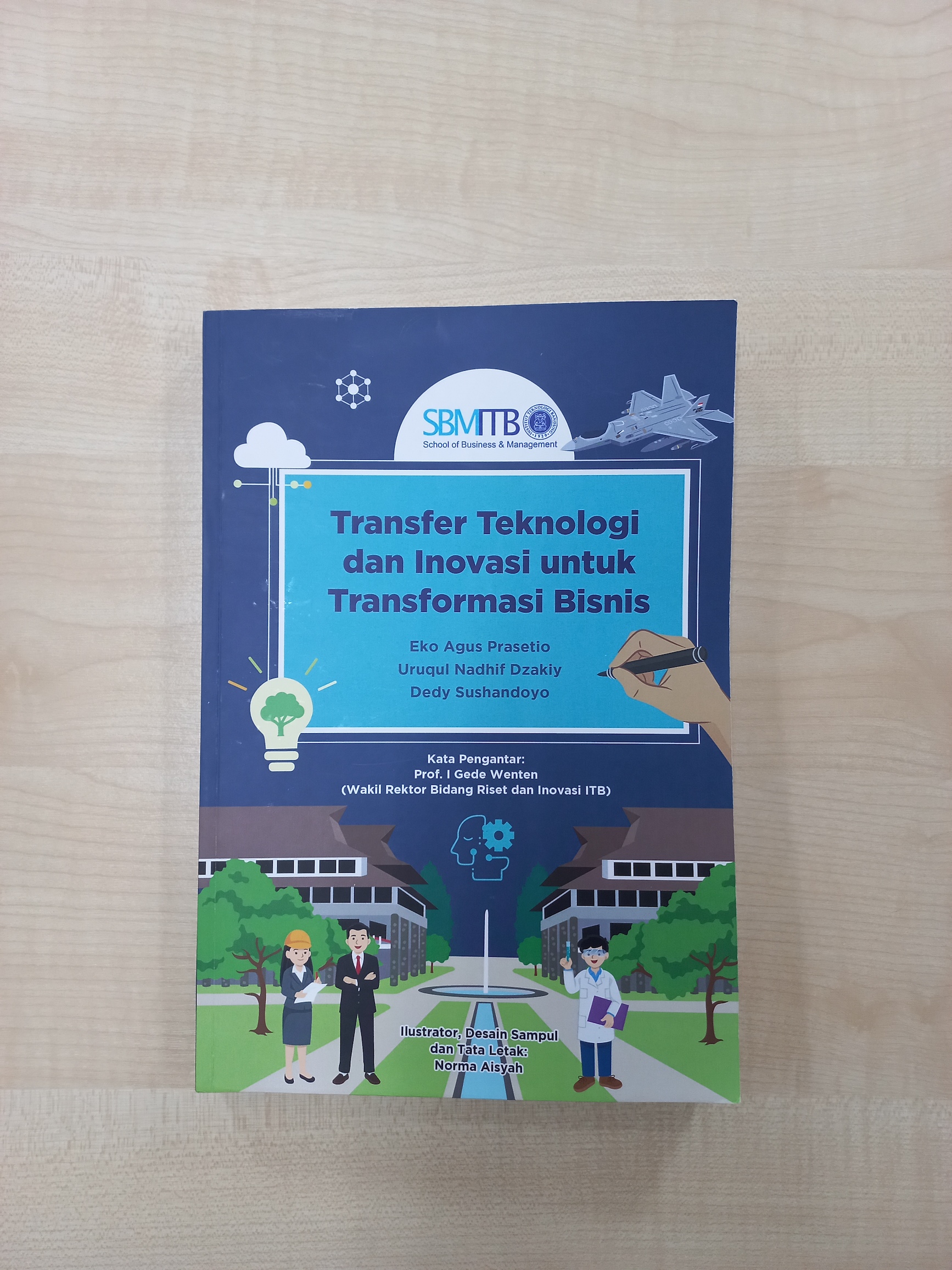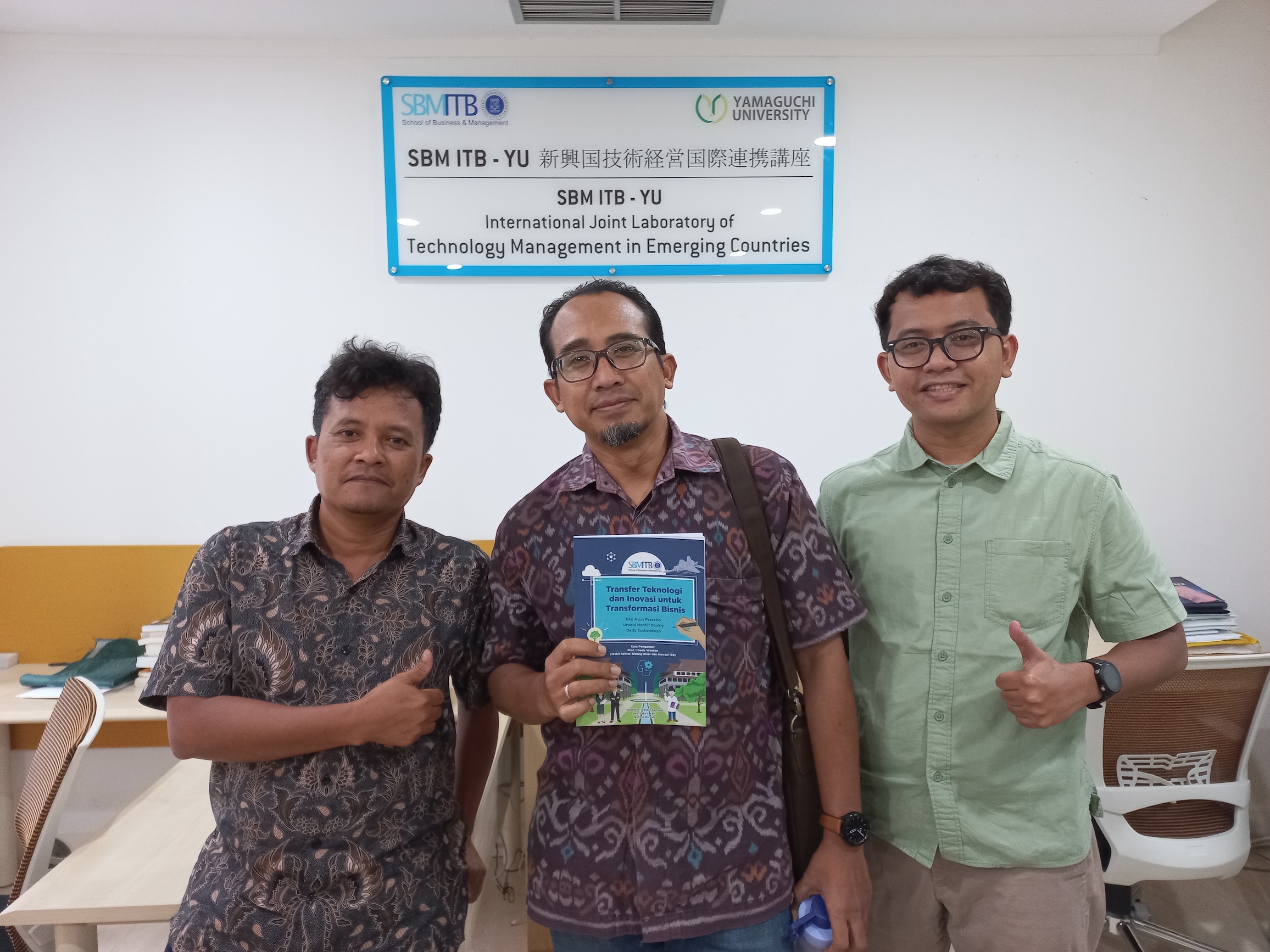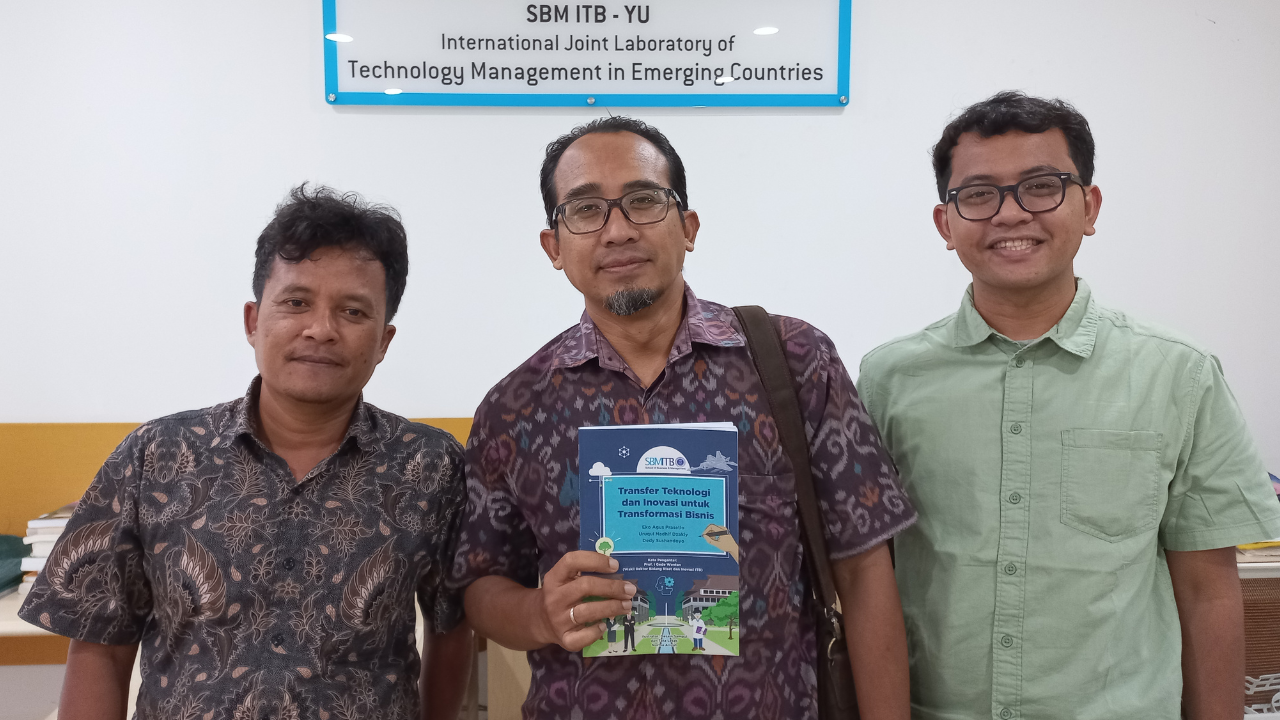The era of the industrial revolution 4.0 brought major changes in the world of work and technology. Increasingly sophisticated technology is the main key to increasing productivity and efficiency in various fields.
For this reason, we must always improve our capabilities and keep up with the latest technological developments. However, technology transfer related to innovation is not widely known by the public and is not presented easily. Thus, Eko Agus Prasetio, Uruqul Nadhif Dzakiy, and Dedy Sushandoyo attempted to change this by writing a book entitled “Transfer of Technology for Innovation: from Research to Industry”.

This book presents some basic concepts about technology, patents, and how to develop them, along with examples of cases in Indonesia. This book enables readers to understand the importance of being technologically independent and how the technology transfer mechanism works. This book focuses on perfecting research results from university research institutes that are applied in the industry.
Initially, the product produced is only a prototype. However, through the industrial production stage, the prototype is refined and introduced to the market through mass production and sales.
One of the interesting cases raised in this book is FIN Komodo. This company focuses on off-road car production and is an example of a technology-based industrial development that focuses on product development and continuously conducts research and development continuously and continuously. The development process went through several stages and took about 21 years.
Another case discussed was “Cooperation in the Development of Indonesia-Korea KF-X/IF-X Aircraft.” Transferring fighter aircraft technology must go through a long and complicated procedure. Starting with sending hundreds of engineers from PTDI to South Korea to study the aircraft subsystems in stages, they became prototypes, followed by flight feasibility tests before entering the production phase.
“This book provides a useful guide on how to add value to Indonesia’s natural resources by utilizing technology,” said one of the authors, Dedy Sushandoyo. “One way is through technology transfer.”
Dedy hopes this book can provide readers with knowledge and awareness that we can all create our technology. This is important so that we do not depend on foreign products, which often do not suit the needs of our society or are too expensive.





